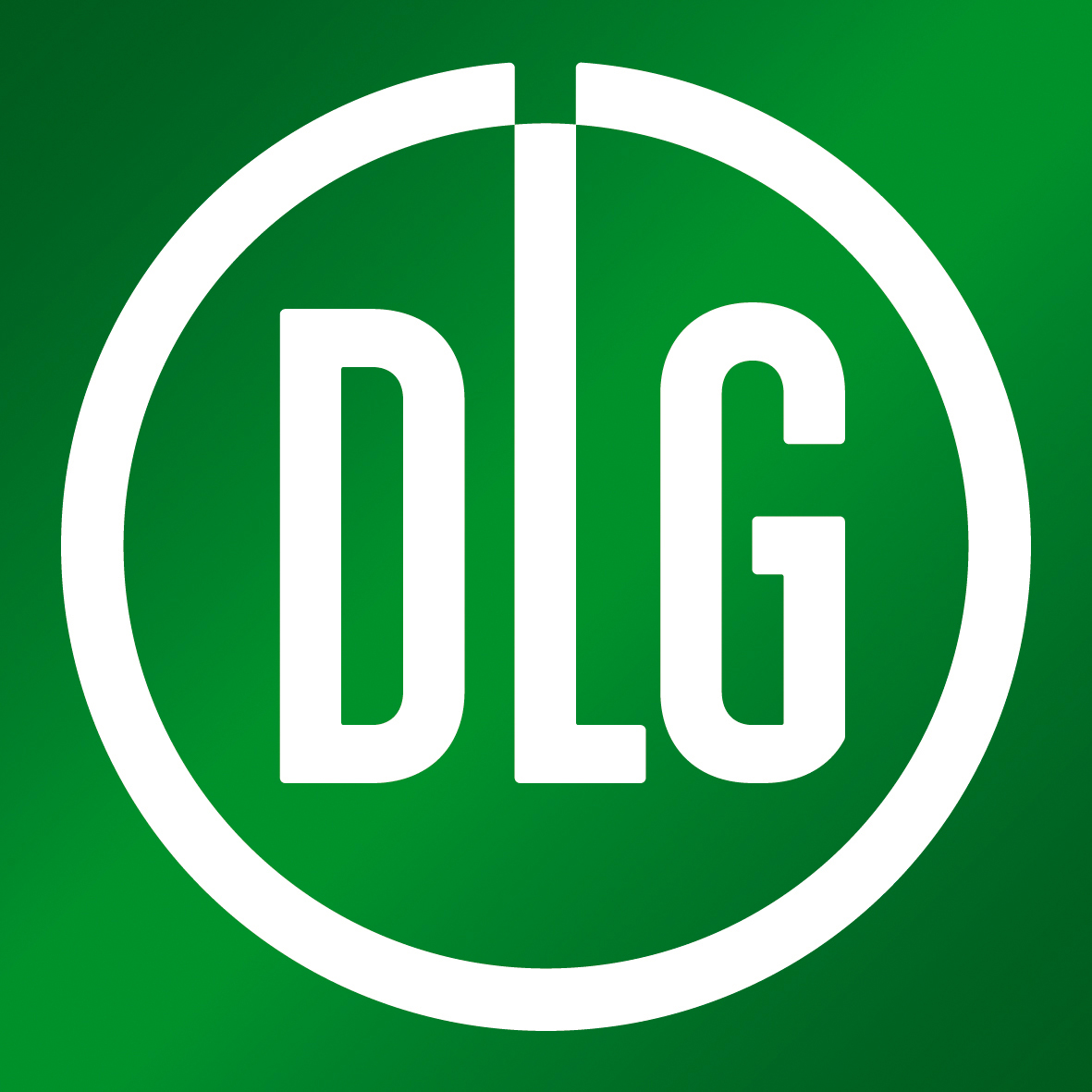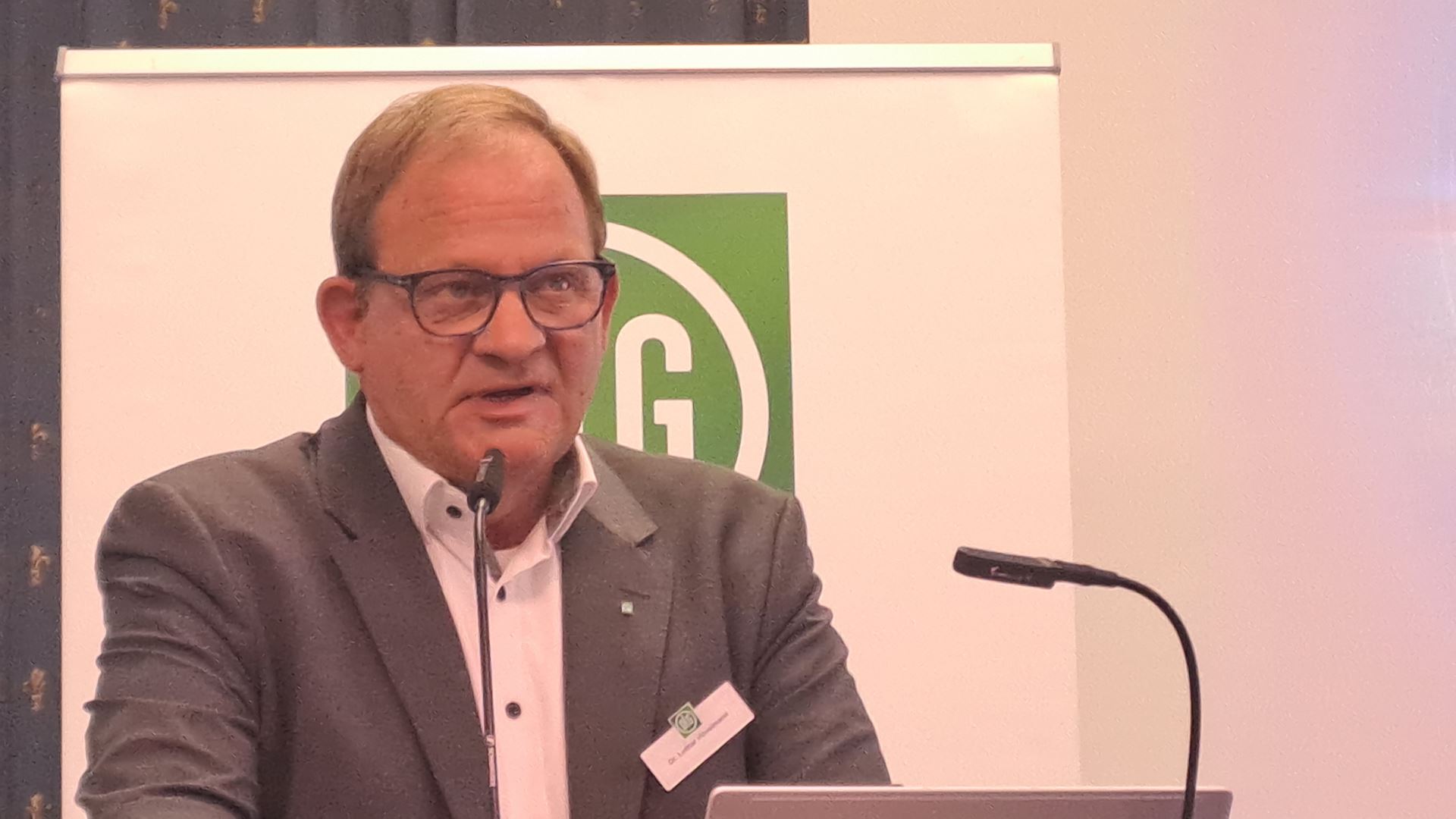22 September 2025 - Agritechnica 2025 from 9 to 15 November in Hanover, Germany – Around 2,700 exhibitors from 52 countries and 430,000 visitors expected – Guiding theme: “Touch Smart Efficiency” – Technologies, innovations, and knowledge transfer for a resilient and future-proof global agriculture – Exclusive insights from the international DLG survey “AgriFuture Insights” presented at the international press conference in Kassel, Germany– agritechnica.com.
“Milestones for Sustainable Productivity Growth” – this was the central theme of the analysis presented by Dr. Lothar Hövelmann, Chief Executive Officer of the DLG (German Agricultural Society), on the international agribusiness environment. Dr. Hövelmann delivered his remarks during the international press conference for Agritechnica, the world’s leading trade fair for agricultural machinery, held on 22 September in Kassel before an audience of international media representatives. In light of global challenges – from geopolitical tensions and climate change to rising societal and political demands – Agritechnica sends a strong signal for innovation and agricultural viability, emphasized Dr. Hövelmann. He also presented exclusive findings from the DLG’s “AgriFuture Insights” survey, conducted online between April and May 2025 among 2,184 agribusiness professionals worldwide. The results clearly show that farmers, researchers, and agribusiness leaders are increasingly relying on the combination of sustainable farming practices and advanced technologies to future-proof the sector. This, Hövelmann noted, underscores the relevance of the DLG’s new guiding principle: “Sustainable Productivity Growth.”
“While agriculture is under immense pressure, Agritechnica 2025 offers a platform to present solutions for sustainable growth and to stimulate dialogue between practitioners, researchers, and industry,” emphasized Dr. Lothar Hövelmann, Chief Executive Officer of the DLG, the organizer of Agritechnica, during the presentation “Milestones for Sustainable Productivity Growth” at the international press conference on Monday, 22 September, in Kassel, Germany. The event was held in the run-up to Agritechnica, the world’s leading trade fair for agricultural machinery, which takes place from 9 to 15 November in Hanover, Germany.
Geopolitical tensions impact agricultural markets
The market environment for the international agricultural sector is currently under significant pressure, explained Dr. Lothar Hövelmann. The ongoing Russian war of aggression against Ukraine, now in its fourth year, continues to weigh heavily on economic development, particularly in Europe. Geopolitical tensions in the Middle East are further intensifying global threats. This, emphasized Hövelmann, is putting markets and global supply chains to a severe test.
International markets are also being disrupted by the unpredictable tariff policies of the Trump administration in the United States. Wheat prices on Euronext in Paris are currently weak, trading at around 190 euros per ton—below the psychologically important threshold of 200 euros per ton and approximately 30 euros per ton lower than two years ago. This decline is due in part to global stockpiling.
The global oilseed market is also reacting with volatility, strongly influenced by geopolitical tensions in the Middle East. When oil refineries in the region are affected by armed conflict, prices for oilseeds such as soybeans and rapeseed show significant fluctuations.
While agriculture worldwide is already being challenged by the impacts of climate change, particularly through increasingly frequent extreme weather events, the sector in Germany, Europe, and globally must also contend with regulatory requirements and documentation obligations, Hövelmann continued. These demands tie up additional resources on farms. In these turbulent times, practical solutions are needed to ensure the efficient supply of food, feed, energy, and renewable raw materials to the global population.
Sustainable Productivity Growth for Resource-Efficient Food Security
The DLG has placed its work under a new guiding principle: “Sustainable Productivity Growth.” This concept incorporates both the consumption of natural resources and the efforts made to protect them into the measurement of agricultural productivity, explained Dr. Lothar Hövelmann. Efficiency gains in production and resource use are achieved through technological innovation and sustainable, forward-looking practices on farms.
To ensure that a global population expected to reach 10 billion by 2050 can be fed securely with affordable, healthy food, global agriculture must achieve annual production growth of around 2 percent, emphasized Hövelmann. He referred to calculations by the UN Food and Agriculture Organization (FAO) and the Department of Agricultural Economics at the University of Göttingen. This growth target was met until the early 2000s, he noted. However, since 2010, the benchmark has not been reached — with the EU in particular recording declines in productivity.
This trend must be reversed, Hövelmann stressed, pointing to global grain stocks: in the past five years — with the exception of the 2022/23 marketing year — global wheat consumption has exceeded supply, according to figures from the International Grains Council (IGC). The global agricultural sector must respond to this development.
The DLG, he concluded, is offering a strong response to these challenges through its guiding principle of Sustainable Productivity Growth.
Despite the challenging global market environment, farmers remain cautiously optimistic about the economic outlook for their businesses. This is reflected in responses to the DLG’s “Agrifuture Insights” survey, conducted between April and May 2025 among 2,184 farmers and agricultural professionals worldwide. At the press preview in Kassel, Dr. Hövelmann presented initial results from the online survey: around 40 percent of arable farmers and more than 50 percent of dairy and pig producers expect good to very good business development — “a sign of the adaptability and innovative strength of farms,” he emphasized.
For the past two years, global agricultural markets have shown a trend in which wheat consumption exceeds production, as illustrated by figures from the International Grains Council (IGC). The global agricultural sector must respond to this development.
The DLG, he concluded, is offering a strong response to the sector’s challenges through its guiding principle of Sustainable Productivity Growth.
AgriFuture Insights: Modern Digital Technologies Driving Sustainable Growth
Modern digital technologies are proving to be key drivers of sustainable productivity growth, as confirmed by the findings of the AgriFuture Insights survey. Participants from academia, consultancy, and the agricultural industry rated the contribution of these technologies as “very important” for increasing productivity. Farmers, while slightly more reserved, still considered their role to be “important.”
Dr. Lothar Hövelmann explained that farmers’ more cautious assessment stems from a combination of concerns: data protection issues, challenges with the interoperability of different digital systems on farms, shortcomings in user-friendliness, and the need to build and expand IT expertise within agricultural operations.
At Agritechnica, the Digital Farm Center will bring together technologies such as artificial intelligence, robotics, drones, and autonomous systems under one roof. By fostering exchange between farmers, manufacturers, and researchers, the center will play a vital role in improving the practical usability of modern technologies and reducing barriers to their adoption, Hövelmann emphasized.
Another challenge identified by survey respondents is the shortage of skilled labor. Seventy percent of larger farms expect staffing shortages, and 39 percent of respondents see automation and investment in technology as a solution. In line with this, farmers rated drone-based solutions—such as drone-assisted sowing—as “important” for achieving sustainable productivity growth in the future. A similar assessment was made for the use of autonomous systems. Respondents from academia and consultancy even rated both areas as “very important” for advancing sustainable productivity.
In addition to cutting-edge technologies, Agritechnica will also spotlight soil health as a key component of sustainable productivity growth. Practices such as conservation tillage, cover cropping, and extended crop rotations are gaining importance in agricultural operations, Hövelmann noted. This is reflected in the survey results: 53 percent of respondents already implement conservation tillage on their farms, 78 percent grow cover crops, and 57 percent practice extended crop rotations.
Dr. Hövelmann also addressed investment plans on farms over the next twelve months, based on a separate AgriFuture Insights survey conducted among 628 participants, including 197 international respondents. According to the findings, 46.5 percent plan to invest in soil cultivation technologies, 43.6 percent in tractors, and 24.7 percent in harvesting machinery. Software solutions ranked fourth, with 23.7 percent of respondents planning investments in this area. Additionally, 11.5 percent indicated plans to invest in autonomous systems such as field robots.
AgriFuture Insights: Modern Digital Technologies for Sustainable Growth
Modern digital technologies are playing a key role in driving sustainable productivity growth — a finding supported by the results of the AgriFuture Insights survey. Participants from academia, consultancy, and the agricultural industry rated the contribution of these technologies as “very important” for increasing productivity. Farmers, while somewhat more reserved, still considered their role to be “important.”
Dr. Lothar Hövelmann explained that farmers’ more cautious assessment stems from a combination of factors: concerns about data protection, challenges with the interoperability of different digital systems on farms, shortcomings in user-friendliness, and the need to build and expand IT expertise within agricultural operations.
At Agritechnica, the Digital Farm Center will bring together technologies such as artificial intelligence, robotics, drones, and autonomous systems under one roof. By fostering exchange between farmers, manufacturers, and researchers, the center will make a valuable contribution to enhancing the practical usability of modern technologies and reducing barriers to their adoption, Hövelmann emphasized.
Another challenge identified by survey respondents is the shortage of skilled labor: 70 percent of larger farms expect staffing shortages. In response, 39 percent of participants see automation and investment in technology as a solution. In line with this, farmers rated drone-based applications, such as drone-assisted sowing, as “important” for achieving sustainable productivity growth in the future. A similar assessment was made for the use of autonomous systems. Respondents from academia and consultancy even rated both areas as “very important” for advancing sustainable productivity.
Soil Health Gains Importance Among Farmers Worldwide
In addition to showcasing cutting-edge technologies, Agritechnica will also spotlight soil health as a key component of sustainable productivity growth. Under the theme “Soil Health,” the exhibition will focus on topics such as regenerative agriculture, the importance of crop rotation, minimal soil disturbance, soil biodiversity, permanent soil cover, and humus management.
“Reduced tillage, the cultivation of cover crops, and extended crop rotations are gaining increasing importance in agricultural practice,” said Dr. Lothar Hövelmann. This is reflected in the findings of the latest AgriFuture Insights survey: 53 percent of respondents stated that they already implement soil-conserving cultivation technologies on their farms, while 78 percent grow cover crops. An extended crop rotation is practiced by 57 percent of those surveyed.
DLG Managing Director Dr. Lothar Hövelmann also addressed investment plans on farms over the next twelve months, as surveyed in the AgriFuture Insights study. According to the results, 46.5 percent of respondents plan to invest in soil cultivation technologies, 43.6 percent in tractors, and 24.7 percent in harvesting machinery. Software solutions ranked fourth, with 23.7 percent of respondents planning investments in this area. Additionally, 11.5 percent indicated plans to invest in autonomous systems, such as field robots.
The discussion paper on the new DLG guiding principle “Sustainable Productivity Growth Here.
www.instagram.com/agritechnica
www.linkedin.com/groups/3348135/
www.linkedin.com/showcase/agritechnica1/
Media contact:
Malene Conlong
Tel: +49 6924788237
Email: M.conlong@dlg.org
About DLG
With more than 31,000 members, DLG is a politically independent and non-profit organisation. DLG draws on an international network of some 3,000 food and agricultural experts. DLG operates with subsidiaries in 10 countries and also organizes over 30 regional agricultural and livestock exhibitions worldwide. DLG’s leading international exhibitions, EuroTier for livestock farming and Agritechnica for agricultural machinery, which are held every two years in Hanover, Germany, provide international impetus for the local trade fairs. Headquartered in Frankfurt, Germany, DLG conducts practical trials and tests to keep its members informed of the latest developments. DLG’s sites include DLG's International Crop Production Centre, a 600-hectare test site in Bernburg-Strenzfeld, Germany and the DLG Test Centre, Europe's largest agricultural machinery test centre for Technology and Farm Inputs, located in Gross-Umstadt, Germany. DLG bridges the gap between theory and practice, as evidenced by more than 40 working groups of farmers, academics, agricultural equipment companies and organisations that continually compare advances in knowledge in specific areas such as irrigation and precision farming.

